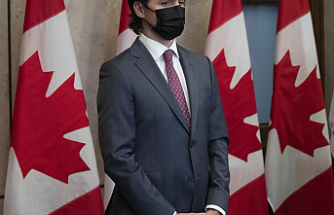Caption
Close
MARION, Ala. (AP) — Here, in what's left of the Old South's plantation region, the descendants of slaves who picked cotton and worked the dark soil are praying differently since Donald Trump moved into the White House.
During Barack Obama's eight years in office, folks who gathered for Bible studies or Sunday worship worried that someone would try to kill the nation's first black president, and they asked God to protect him. Today, those worshippers are asking the Almighty to instill Trump with a kind heart and give him understanding for people far outside the world of Manhattan real estate or reality TV.
"We're asking for him to be compassionate," said Frances Ford, 60, a nurse who leads a nonprofit program that works with needy people in Marion, the seat of Perry County, one of the poorest places in the impoverished 11-state region known as the Black Belt — originally for the dark color of its soil and later for its high percentage of black residents.
With more than 600 counties stretching from southern Virginia to east Texas, the Black Belt was wealthy when cotton was king. But, as a study from the University of Georgia and North Carolina State University found, it eventually became the nation's largest contiguous pocket of poverty. High unemployment, poor education, declining population and persistent health problems are the norm.
Black residents here were energized by hope when Obama was elected — Perry County went so far as to declare an annual holiday in his honor — but the start of Trump's term has been marked by skepticism, anxiety and fear, feelings that are growing for many black Americans nationwide as they struggle to connect with the president.
Trump promised his policies would benefit African-Americans and predicted he'd win the black vote. He didn't: About 8 percent of black voters nationwide supported him.
And Trump hasn't done anything since to make blacks feel more comfortable about his time in the White House, said Camille Charles, a sociologist at the University of Pennsylvania.
Trump tangled on Twitter with civil rights icon Rep. John Lewis of Georgia. He later threatened to "send in the feds" to address Chicago's gun violence — a nod to his classification of "inner cities" that many blasted as racist during the campaign. On the first day of February, Black History Month, Trump was slammed for praising abolitionist Frederick Douglass, who died in 1895, as someone "who's done an amazing job and is being recognized more and more." Two weeks later, he asked a black journalist to help arrange a meeting with black lawmakers, and many balked at his suggestion that the parties must know each other because of their shared race.
Trump's nomination of Jeff Sessions for attorney general created waves especially in Alabama. Opponents attacked Sessions, the state's junior senator and once its top prosecutor, over allegations that he'd joked about the Ku Klux Klan and addressed a black U.S. attorney as "boy," and they railed against his record on civil rights and policing. But Sessions was confirmed.
So the prayers of the people in Marion and the concerns of the Black Belt are "broadly held," sociologist Charles said.
They worry Trump will slash health care and disability-compensation programs that help keep people afloat in areas where thriving businesses and good jobs are few. The Black Belt has yet to recover from the end of the plantation economy — antebellum mansions stand as relics of the wealth the region once celebrated.
"When your whole city or your whole economy is based on surviving on the backs of someone else, then it's going to eventually give out," said native Mary Cosby Moore, 58, who serves as the circuit court clerk in Marion. "So, you look at other ways of trying to fill those gaps. We're still trying to fill that gap."
For all the excitement of Obama's election, his tenure didn't bring much real change to the region. More people have health insurance than they used to, and unemployment is down, just like in other parts of the country. But winding highways are still lined with abandoned homes and failed businesses.
Standing outside a long-closed store in Perry County, Percy Walker said the whole region feels left behind.
"The only reason people come to town now is for funerals, and they leave as soon as they're over 'cause there's nothing to do and nowhere to stay," said Walker, 64, the son of sharecroppers.
County residents credit Obama with trying to help, particularly through his trademark federal law to expand health insurance coverage. But the county still lacks a hospital and has Alabama's highest poverty rate. With jobs so scarce, the population fell by nearly 9 percent in the last five years.
Residents who remain love the slow pace and beautiful countryside, but they say part of the problem is an exodus of young people seeking jobs elsewhere. Moore, the clerk, has seen it in her own two children: Her son is an attorney in New York; her daughter commutes to Selma to work in a Social Security office. And residents don't yet know whether they can trust Trump to change anything.
"He's a little too hot for the position. He puts his mouth in motion before his mind is in gear," said store owner Homer King, 58, whose ancestors belonged to white plantation owners.
Few blacks here voted for Trump — Perry County is 30 percent black, 70 percent white, and the president received 26 percent of the total vote. Still, in spite of Trump's win, the county held its annual Obama holiday just after the election. King grins at the memory of the parade and says the holiday brings a feeling of shared accomplishment for electing the nation's first black president.
But King, like others, is still praying for Trump.
"Really, what else can we do?" he said.
Our editors found this article on this site using Google and regenerated it for our readers.









